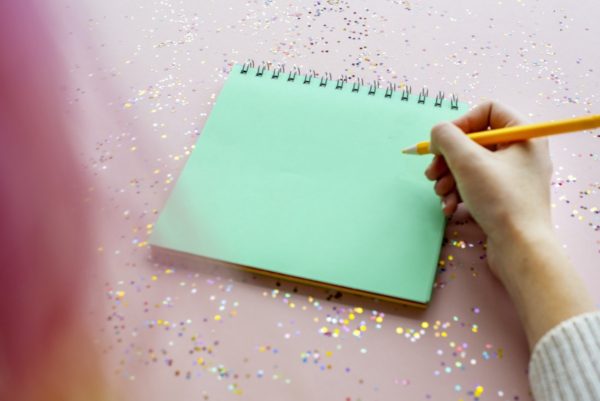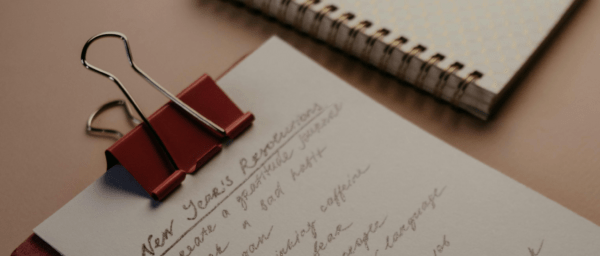
How to be Less Scatty

Not long ago, it was Father’s day in Ireland. My brother and I partnered up in the standard gift collaboration/money-saving approach. That morning, as I presented all of the bits that dad neither wants nor requires, my brother looked at me in disgust. He aggressively pointed at the white residue left from the price sticker. “This is you. This is you in a nutshell.” He was referring to the fact that I did not remove said residue from the package. Why didn’t I do it? Perhaps a few reasons, one being that I didn’t want sticky white residue under my fingernail. I felt quite taken aback that this is a direct reflection of me, however, I knew exactly what he meant. My phone screen is cracked. I forget my keys. My books have dog ears on every page. I’m scatty. So, I’ve taken it upon myself to embark on a mission to de-scatter my ways. I’ve read the books, listened to the podcasts, and I’m ready to be one of those people with organised bags and to-do lists. Here’s what my research has told me.
Meditation
Apparently scattiness is not, in fact, a personality trait. Scattiness is the first sign of a cluttered mind. If your mind jumps from thought to thought, so will your actions. This is the reason why you leave without your keys even though at some point you went to put them in your bag. It could even be why you pop to the shop for eggs, go to make your omelette and realise you returned sans-eggs. As I’m sure we all know by now, the best way to focus your mind and clear out unnecessary noise is by meditation. I’ll be the first to say that I am resistant towards an hour-long meditation at 6am but according to some experts, that’s a bit of an overkill anyways. One study found that meditating for just thirteen minutes daily enhanced attention and memory after 8 weeks. Sixty might be a push, but I will spare thirteen minutes every morning for Headspace if it can cure me of my scatterbrain.
Time-Batching
Rather than doing little bits here and there, you should batch your time so that when you’re doing one thing, you’re focussed on it and do it with all of your energy. For example, do you ever put on a wash, only to forget you’ve put on the wash? After a long day of sitting in the machine, all of your clean clothes require another round of washing because they’ve gathered a peculiar wet-dog scent. You then proceed to procrastinate the ironing. “I’ll iron that shirt when I need to wear it.” A few days later, you go to complete your outfit with said shirt and low and behold, you don’t have time to iron it. No, the wrinkles don’t fall out on their own. Using the Ivy Lee method, prioritise the six things you need to do for the following day and then batch your time to spend a few hours doing each one, properly.
Have Dedicated Spaces
Lastly, everyone is given leeway to own a man-drawer. That is, that drawer that holds a combination of screwdrivers, safety pins, plasters, lightbulbs, and maybe some post-it notes. However, if your knives and forks don’t have their own dedicated spaces, you need to have a long hard look at yourself. After spending absolutely nothing on drawer organizers and a key hook, I can confirm that my cortisol levels during the morning rush have drastically decreased. These two essentials are what every scatterbrain needs in their lives. Drawer organizers will help you to declutter so there’s less bits and bobs to distract you from what you’re actually looking for. That’s right- that ten year old nude lipstick can finally go. Meanwhile, a key hook beside the door will allow the keys to blatantly stare you in the face before you leave, preventing you from annoying your unfortunate housemate later.
That concludes the three main steps I have gathered for the slow and steady progression into somebody who has their life together. Also, if you don’t have a screen protector, consider this your sign to get one.











































